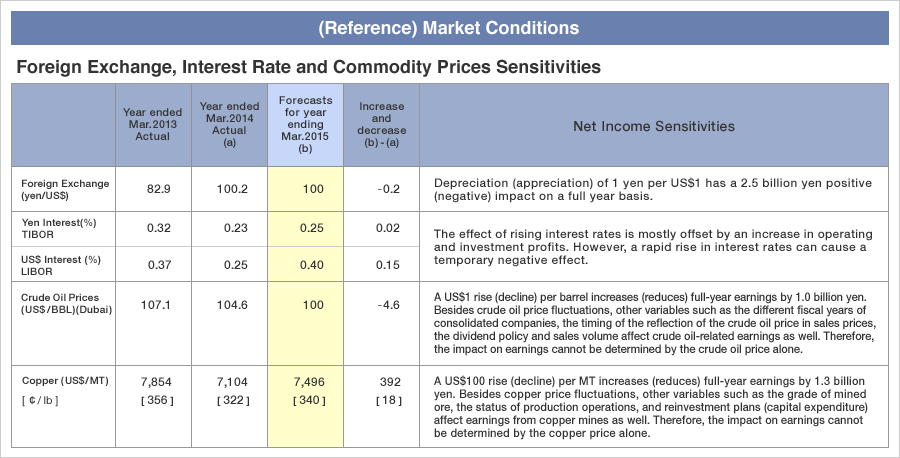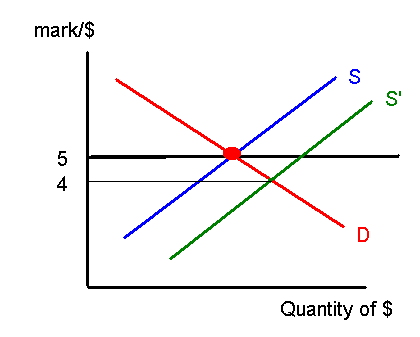How Does The Yen Affect American Finance
Post on: 20 Июль, 2015 No Comment

How connected are the economies of Japan and the United States? For the month of July 2010, Japan ranked as the fourth largest U.S. trading partner — behind Canada, China and Mexico — with combined exports and imports of $15 billion. That figure breaks down into exports to Japan of $5 billion and imports of $10 billion, equating to a negative balance of trade of $5 billion (12% of the U.S. total of -$42.8 billion).
With all that money changing hands every month, the relative value of the Japanese yen to the U.S. dollar is very important to American investors and consumers. (For a background, see The U.S. Dollar And The Yen: An Interesting Partnership .)
Recent Events
On September 15, 2010, the dollar dipped below 83 yen for the first time in 15 years. This followed a steady five-month climb of the yen from a level of over 94 yen to the dollar. Currency talk can get a little confusing, but the standard practice is to talk about every currency in relation to how many units it takes to buy one U.S. dollar. So, in this case the yen went from requiring 94 yen to buy $1 to 83 yen to buy $1 — a rise in the value of the yen even though it appears as a numerical countdown from 94 to 83.
In reaction to this rise, Japan’s finance ministry intervened in the foreign exchange markets by selling the yen, resulting in a drop back to the 85 yen to $1 level and a bullish move on the Japanese stock market. A weaker yen bodes well for Japanese exporters as Americans get more bang for their buck when buying Japanese products.
The day before the intervention, Prime Minister Naoto Kan overcame an internal challenge to his leadership of the ruling Democratic Party. His expected victory over Ichiro Ozawa helped push the yen to its recent highs.
Stock Markets
The Nikkei responded favorably after the intervention by jumping more than 2% that day. The strong yen had been hurting Japanese exporters who were concerned that further job losses were inevitable if something wasn’t done soon.
Japanese trade minister Masayuki Naoshima said that corporations would suffer if the trend continued since they had been assuming an exchange rate of 90 yen to the dollar, five points higher than after the intervention. According to Naoshima, an exchange rate any lower than that puts the profitability of many Japanese companies in jeopardy. This raises the question of whether additional government intervention is on the horizon.
The move had the opposite effect in the Far East as markets dropped in South Korea, Hong Kong, China and Australia. In the U.S. the DJIA rose 0.6% points during the two days following the announcement while the dollar rose 3%.
U.S. Companies
A weaker yen exacerbates the U.S. trade deficit by making U.S. exports more expensive. It makes imports from Japan more appealing to U.S. consumers, which will benefit Japanese auto and electronics manufacturers. This is bad news for the American car companies that are struggling to dig out of debt and recover from a prolonged recession. The currency intervention came on the heels of General Motor’s announcement a month ago that it had filed for an IPO .
A weaker yen will hurt American companies that derive much of their revenue from exports to Japan, but lower costs for companies that import machinery and parts. The impact on companies that do business internationally is muted by their exposure to multiple currencies and the worldwide economic downturn.

Most American companies that have a significant presence in Japan operate in yen and pay expenses in yen. The relative strength of the yen has little economic effect on these companies until they have to convert their financial results into dollars for GAAP reporting. At that point, growth rates may be distorted if there has been a shift in currency valuations.
Currency Trading
The door to foreign exchange (Forex) is open to the average investor. You now have the ability to take advantage of currency fluctuations through various methods, including a brokerage trading account, foreign currency CDs, exchange-traded funds and foreign bonds and mutual funds.
You can take long or short positions in the yen or dollar based on how you expect the currencies to perform relative to each other. If one currency is rising, the other must be falling, so there are continuous opportunities to trade in either direction. If you are new to this market, consult a broker who is experienced in currency trading before diving in. While the rewards can be high, you should understand all the risks first. (To learn more, check out How To Pay Your Forex Broker .)
The Bottom Line
The movement of currencies is subject to many factors, but like stocks, the amount of movement is usually greater when the latest news is bad. Whether you trade currencies or own stocks with large international exposure, the value of your investments can react to events both in the U.S. and Japan. The global economy is a reality, and your portfolio must be viewed in that context. Manage your investments with an eye on breaking news from around the world. (For an indepth look at the world’s currencies, see the Investopedia Forex Walkthrough .)
For the latest financial news, check out Water Cooler Finance: The End Of The Recession .














